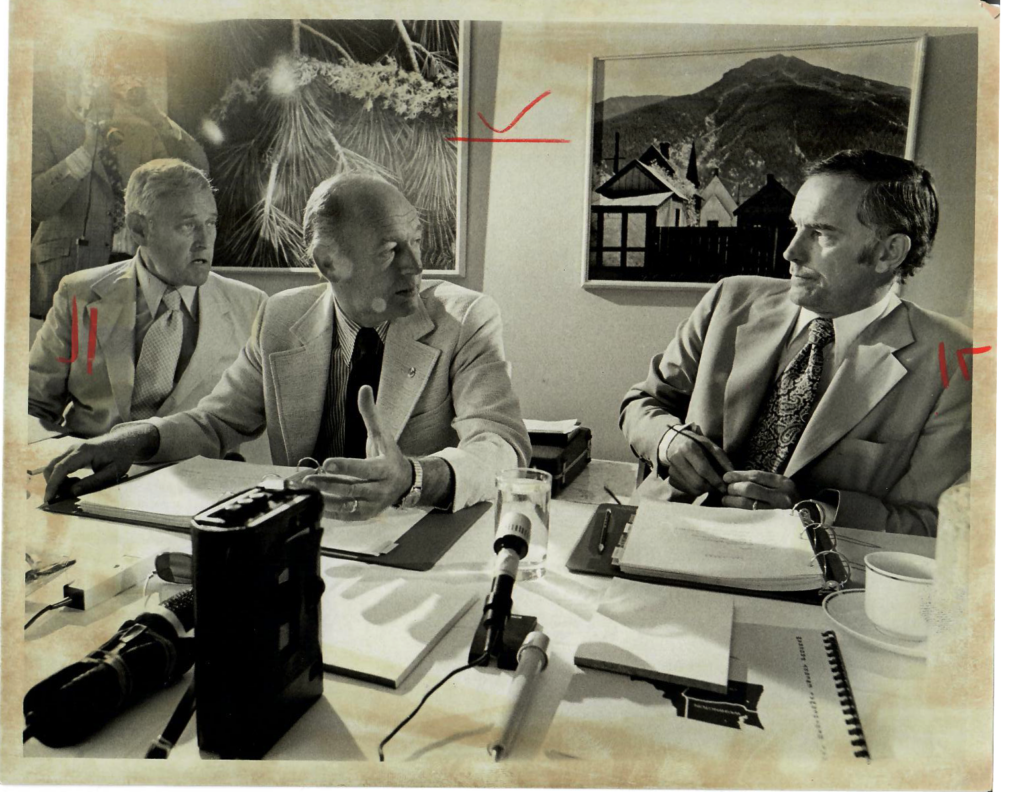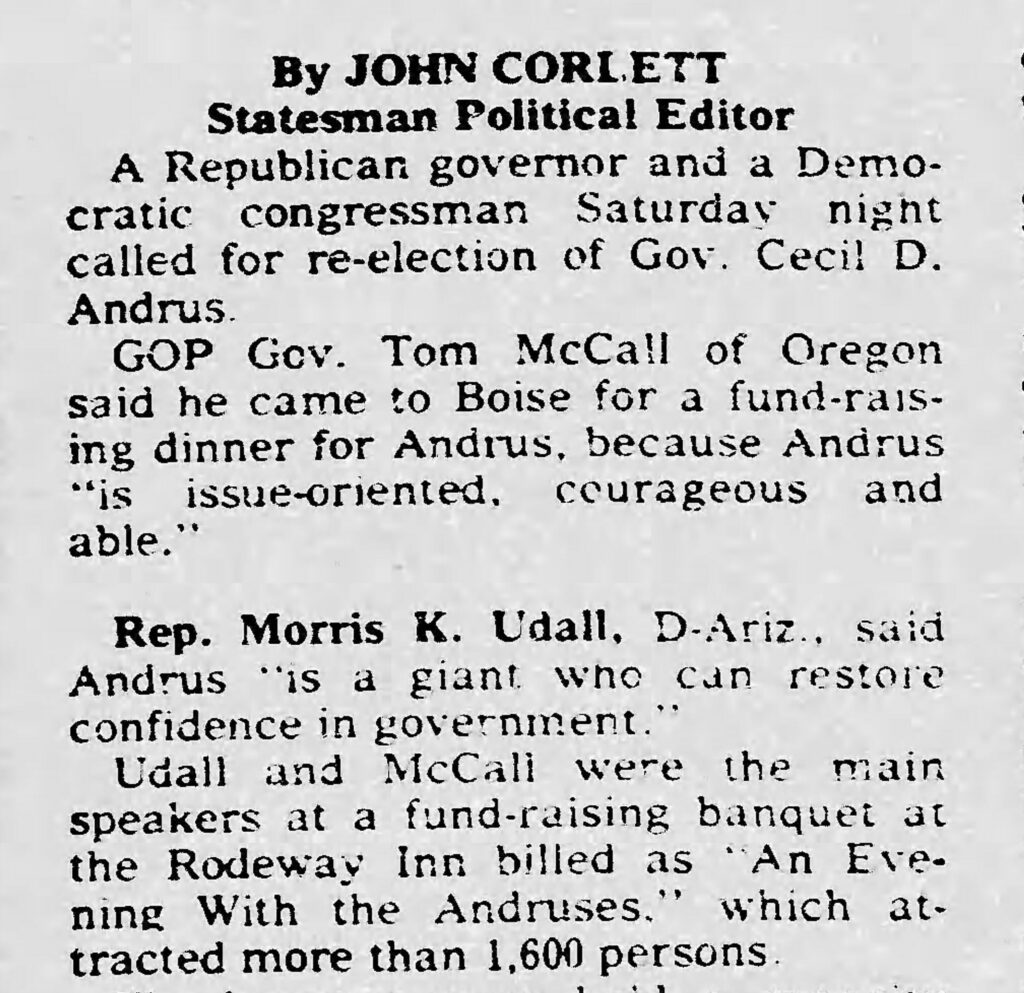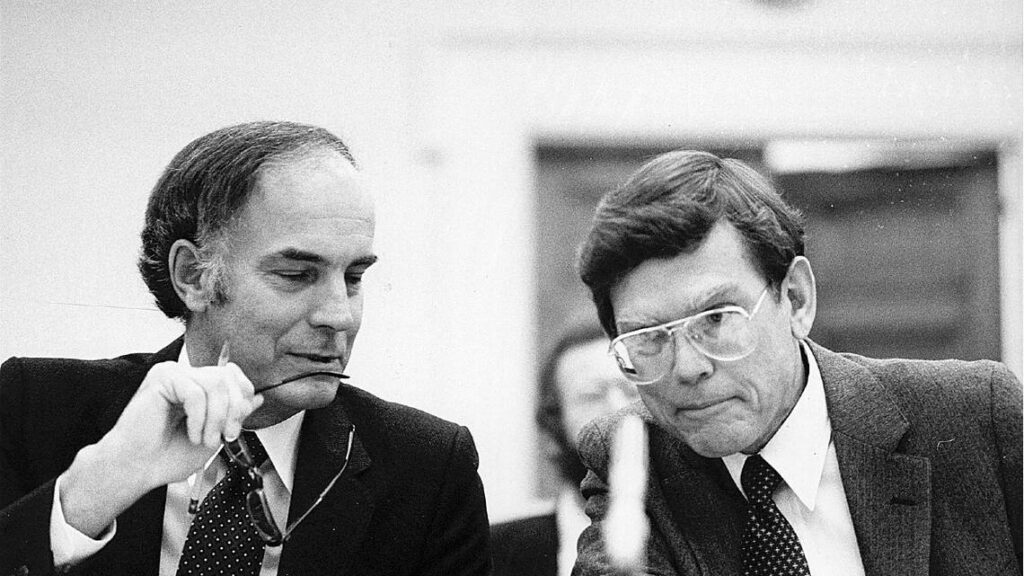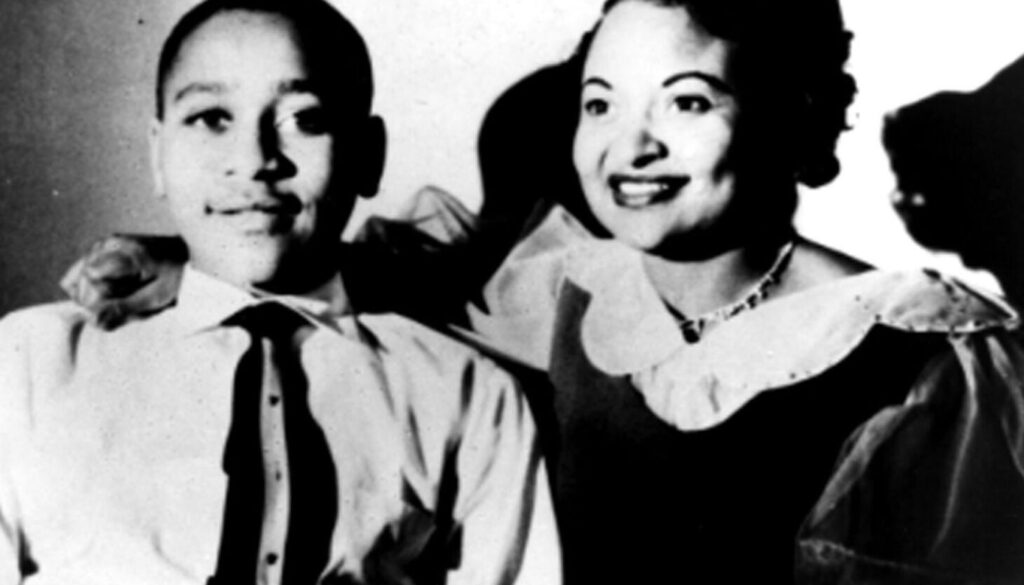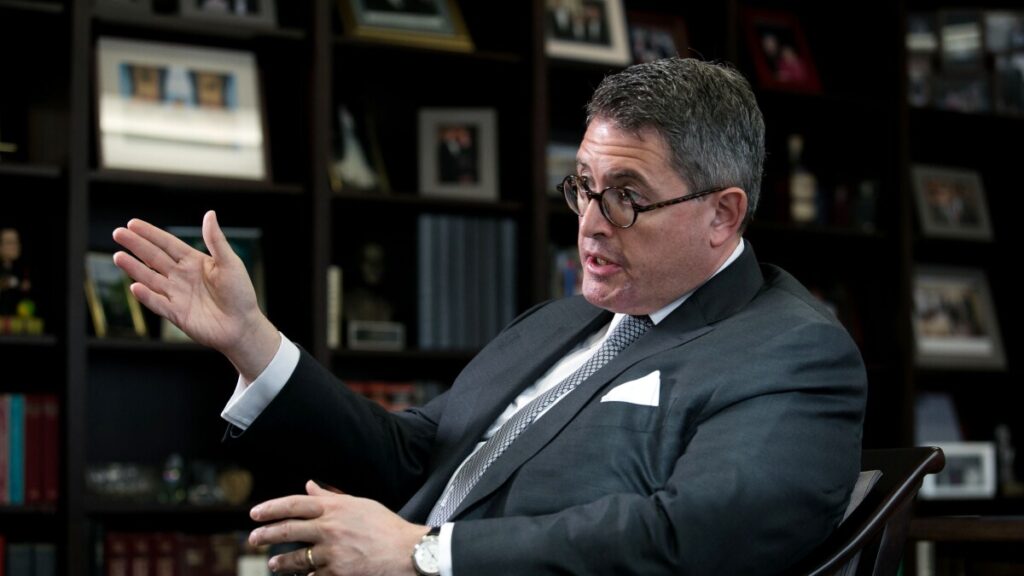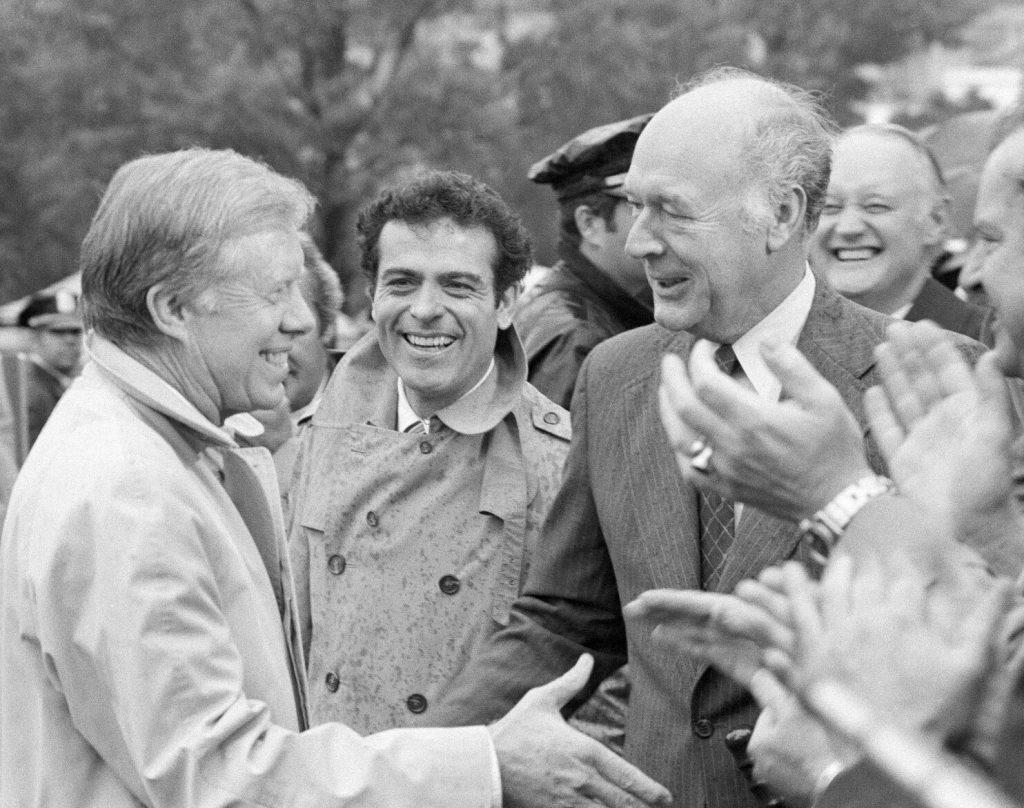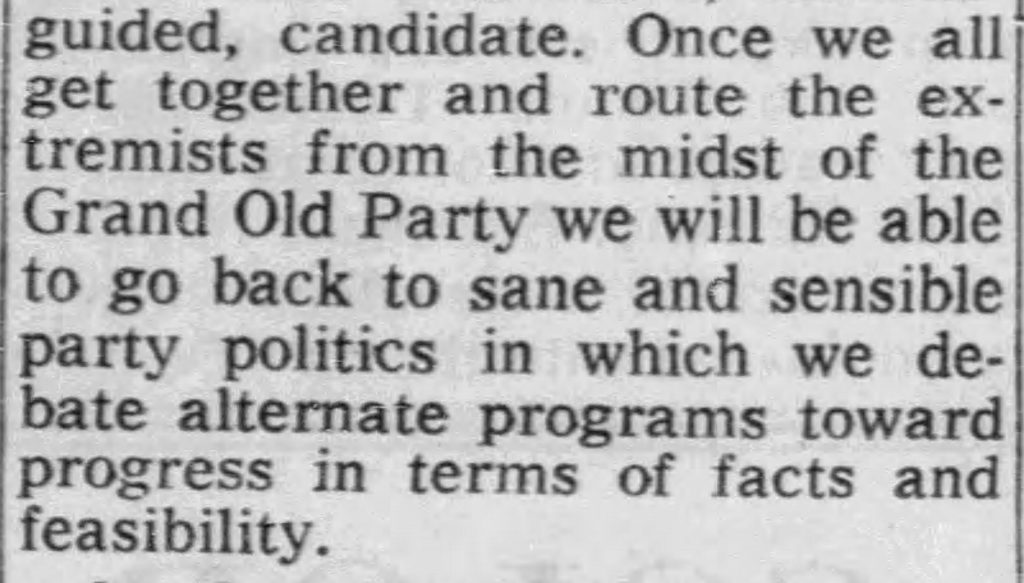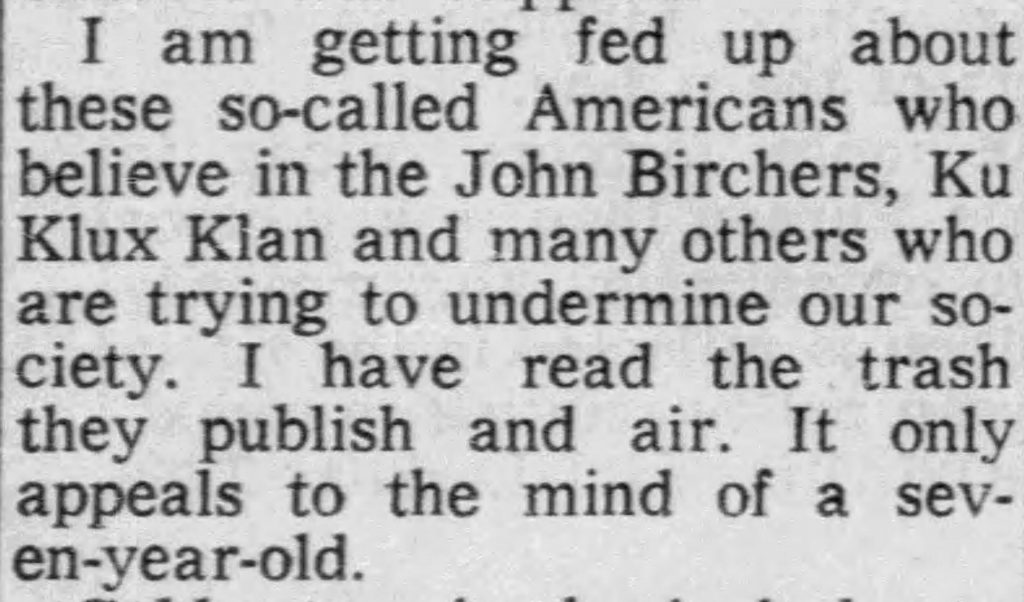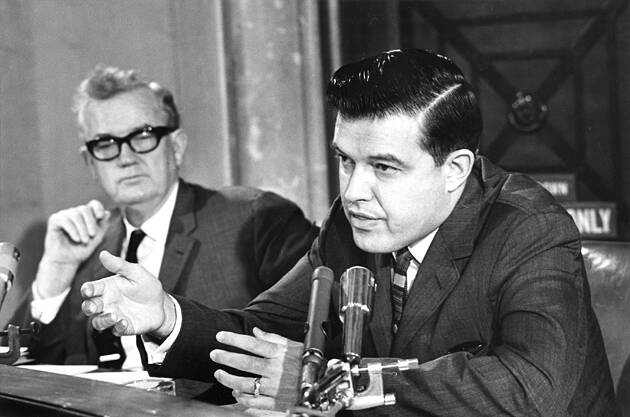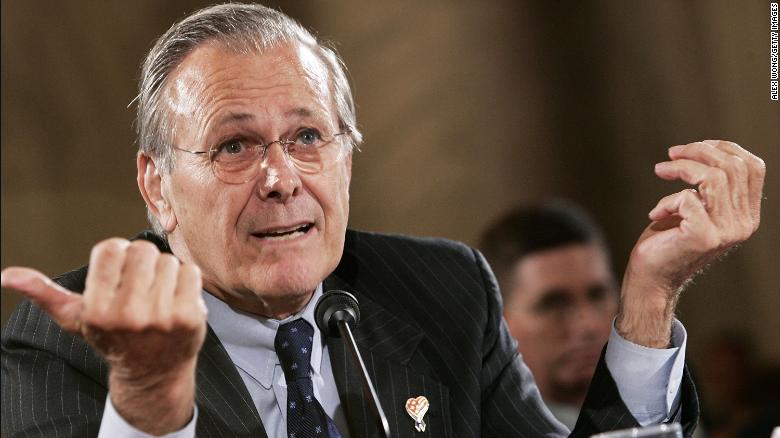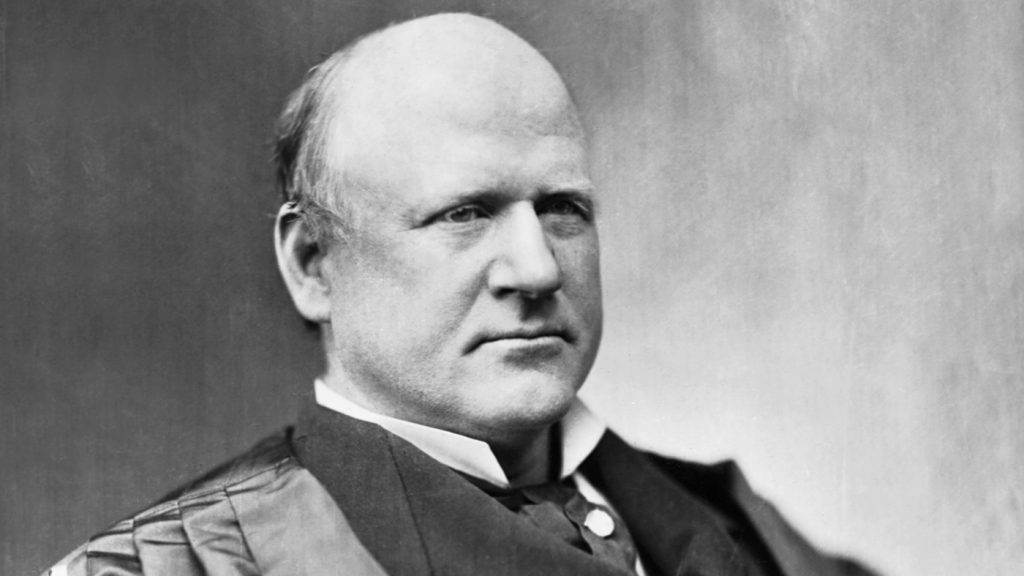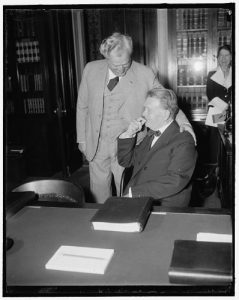Why did Idaho Gov. Brad Little appoint the longtime spokesman of the scandal-plagued National Rifle Association to run two of the state’s most image- and management-sensitive cash cows — the Idaho Lottery and the state liquor dispensary?
It’s a good question that the governor’s office isn’t answering.
On Aug. 22, with no fanfare, Little announced the appointment of Andrew Arulanandam, who served for a few months this year as the interim president of the NRA and before that for years as the organization’s top public affairs official, to run two Idaho agencies that over the last 10 years have produced more than $2.1 billion for Idaho’s public schools, building, local governments and the general fund.
The announcement of Arulanandam’s hiring was so low key that as far as I can tell no Idaho news organization published a story about the hiring, and only the Lewiston Tribune commented on the appointment, noting correctly that Arulanandam had no apparent qualifications for running a lottery or a state liquor system, and that the appointment smacked of the rankest kind of political cronyism. Arulanandam nearly 25 years ago, before going off to flak for the gun lobby, served as executive director of the Idaho Republican Party and worked for Gov. Phil Batt.
One has to have been living under a rock for the last half-dozen years not to know the NRA that Arulanandam recently left is a corrupt, obscene mess led until January of this year by a corrupt grifter, Wayne LaPierre.
As the Associated Press reported in January, Arulanandam became the NRA’s interim president when LaPierre resigned on the eve of a civil trial in New York “over allegations (LaPierre) treated himself to millions of dollars in private jet flights, yacht trips, African safaris and other extravagant perks at the powerful gun rights organization’s expense.”
A New York judge banned the 74-year-old LaPierre from holding any position with the NRA for 10 years, saying that NRA leaders displayed “a stunning lack of accountability” regarding their own responsibility for years of financial mismanagement.
Arulanandam, as he confirmed during a deposition in another case that resulted in a $12 million settlement paid by the NRA to its longtime PR/marketing firm, reported directly to LaPierre. As Arulanandam said when asked about a typical day on the gun lobby payroll, “I interacted a lot with my boss, Wayne LaPierre.” He also confirmed he often traveled with LaPierre on private jets, part of the grift that finally caught up with LaPierre.
The NRA culture of corruption runs deep. As ProPublica reported in 2019, the NRA used member dues to settle a sexual harassment suit against another top NRA official. While the settlement amount was not disclosed, Arulanandam was quoted in news accounts defending the NRA’s actions and downplaying the incident.
Arulanandam is making $200,000 a year in his new position, a big comedown from the more than $330,000 he made at the NRA, but still one of the highest paid jobs in state government. Jeff Anderson, Arulanandam’s predecessor, was making $186,000 when he retired effective July 26. And Anderson held the job for 17 years.
So the real question for Idaho’s governor is why he thought it’s appropriate.
Who recommended Arulanandam? The governor’s office isn’t saying.
Was there some type of process to select the person to operate the technology and security-heavy lottery or the retail and warehousing operations of the liquor dispensary? No response from the governor’s office.
Given the sensitivity of the positions, was there a background check or even a reference check? There is no indication such prudence was applied. None of my requests for more detail or explanation was answered.
What little that is known about Little’s decision to put the NRA’s longtime mouthpiece in charge of two big money-making state operations comes from reading between the lines of what appears to be less than full compliance with Idaho’s public records law.
I requested email, correspondence and text messages related to Arulanandam’s appointment. What can be pieced together from the documents is that Arulanandam sent a text to Little’s chief of staff, Zack Hauge, on Aug. 3 thanking him “for the consideration” and saying he would send his resume, another document the governor’s office refused to provide.
The two appear to have spoken about the liquor and lottery positions on Aug. 5. On Aug. 13 Arulanandam and Little spoke by phone and the governor offered the job. Arulanandam accepted. The next day Hauge emailed a formal offer of employment. It is important to note that all these exchanges, email and text, are dated and time-stamped.
Yet, the final text message the governor’s office released is different. There is no date or time stamp on a message from Arulanandam who was responding to someone in Little’s office, almost certainly Hauge.
“Ha,” Arulanandam wrote in his text. “That’s a name bestowed on Dyke Nally back in the day! Thanks so much for the opportunity. I will work hard. I know I have big shoes to fill and am determined to try and do better.” The reference to Nally, another former liquor director who is a close friend of former Gov. Butch Otter, is truly curious.
Repeated requests that the governor’s office follow the disclosure law and release the other half of this text exchange were stiffed. Arulanandam did not respond to a request that he clarify what he was talking about.
Yet, Arulanandam was clearly responding to someone. And in doing so, he felt compelled, shortly after accepting his new high profile job, to say he was “determined to try and do better.”
Who says that even before officially assuming a new position? And was his reference to Nally a diss of the former director or something else?
In any event, the governor’s office is engaged in an evasion about a significant appointment. Why?
—–0—–
Additional Reading:
For your consideration …
How Jack Smith’s New Case Against Trump Works
The hour is late. The election is upon us.
The U.S. Senate could have done the right thing and convicted Donald Trump for attempting to overthrow and election by encouraging insurrection.
That the Senate abrogated it’s Constitutional duty will forever be an ignominious milestone in American history. Now, Jack Smith, the special counsel, tries to hold him to some account.
“A CAREFUL READING OF SMITH’S MOTION is a stark reminder that Trump and his criminal gang knew that the entire Big Lie was a big lie from the get-go. In fact, they plotted to plant the Big Lie even before the election results were in. To this day, it’s still stunning to realize that the former president and his slew of enablers managed to get as far as they did with their scheme, which only failed in the midst of a bloody insurrection because Pence adhered to his oath to the U.S. Constitution instead of falling on his sword for a craven and treasonous man like Trump.”
Read the entire piece here.
The Moment of Truth
Tom Nichols, a conservative and very clear headed thinker about the current threat to democracy, has written a remarkable piece in The Atlantic about our first president, George Washington.
“Forty-four men have succeeded Washington so far. Some became titans; others finished their terms without distinction; a few ended their service to the nation in ignominy. But each of them knew that the day would come when it would be their duty and honor to return the presidency to the people.
“All but one, that is.”
If your read nothing else before November 5, read this.
Thanks. Be well. Vote.

